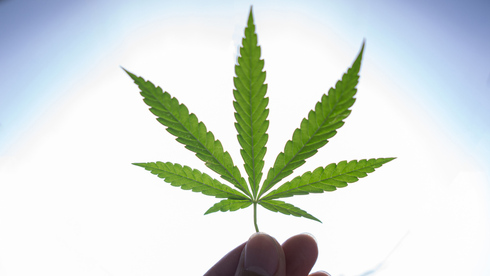Medical cannabis may be effective for young epilepsy patients, Israeli scientists say
3 min read
Medical cannabis could prove to be highly effective in treating severe epilepsy in children, a team of researchers at the Hebrew University of Jerusalem found.
To gain a better understanding of the potential risks and benefits of medical marijuana in young patients, researchers recently completed the very first meta-analysis of pediatric patients treated with the plant.
4 View gallery
Medical cannabis could prove to be a powerful tool for treating epilepsy in children
(Photo: Shutterstock)
Directed by the Hebrew University Ph.D. Candidate Nir Treves, the research was carried out under the auspices of Prof. Ilan Matok at the University’s School of Pharmacy.
The team examined seven clinical studies involving around 500 young patients under the age of 18. From the meta-review, the team was able to uncover both positive and negative effects related to medical cannabis use in this age group.
Importantly, they found a significant improvement in seizure rates in children with uncontrolled epilepsy.
“For some [with epilepsy] the improvement was very noticeable, ”said Treves. “It reduced seizure rates by more than 50% in many children.”
According to Treves, CBD – one of the most prominent compounds in cannabis – has been shown to be effective in relieving epileptic symptoms in many, but not all, cases.
However, these improvements came at a price.
“This treatment has also been linked to decreased appetite, which could be a little alarming for children,” said Treves. “It’s also a bit of a surprise because what we knew so far is that cannabis [usually] increases the appetite. “
Without careful monitoring, this decreased appetite could affect children’s physical development. Cannabis products have also been found to negatively affect children’s mental state, causing drowsiness, fatigue, and lethargy.
“All of these side effects have been linked to all types of cannabis and cannabinoid products,” said Treves, stating that even non-psychoactive elements of cannabis caused side effects.
4 View gallery
Cannabidiol (CBD) -rich hemp oil has been shown to be effective in relieving epileptic symptoms
(Photo: Reuters)
Treves and his team will present their results this week at the 31st Annual International Cannabinoid Research Society Symposium (ICRS), which is being held for the first time in Jerusalem.
The Hebrew University’s Multidisciplinary Cannabinoid Research Center (MCCR) – a leading research center for cannabinoids, endocannabinoids and medicinal cannabis – is hosting the conference.
As part of the meta-analysis, Treves and his team also found that medical marijuana was effective in reducing some of the harmful side effects of chemotherapy in pediatric patients, such as nausea and vomiting. However, because the sample size for this part of the research was very small, the results are inconclusive.
Overall, medical cannabis research is still in its infancy, and much remains to be done before scientists can fully understand the plant’s effects on children’s health.
“There’s almost no research,” said Matok. “There are only seven or eight randomized clinical trials of medical cannabis in children. That’s it! The numbers recruited there are very small, so there is not a lot of data.
“We’re talking about associations, not causality, because this is a meta-analysis,” he added. “Each study has its own attitudes, its own patients, and its own cannabis [strains]. “
Children react differently to medication than adults and therefore need their own separate clinical trials, Matok said. He believes the lack of serious medical marijuana research is partly related to the association with negative connotations. There is also a great lack of research in adults.
“While Pfizer and Moderna have been able to conduct clinical trials for their COVID-19 vaccine in children, there are few top-notch clinical trials for cannabis use in children,” he said. “That’s why it’s not approved as a drug.”
The Hebrew University plans to publish the results of its meta-analysis shortly. In addition, Matok’s next research project will investigate whether medical cannabis increases the rate of depression, cardiovascular accidents and involvement in car accidents in young patients.
Article by Maya Margit, republished with permission from The Media Line.








 Protected by Patchstack
Protected by Patchstack